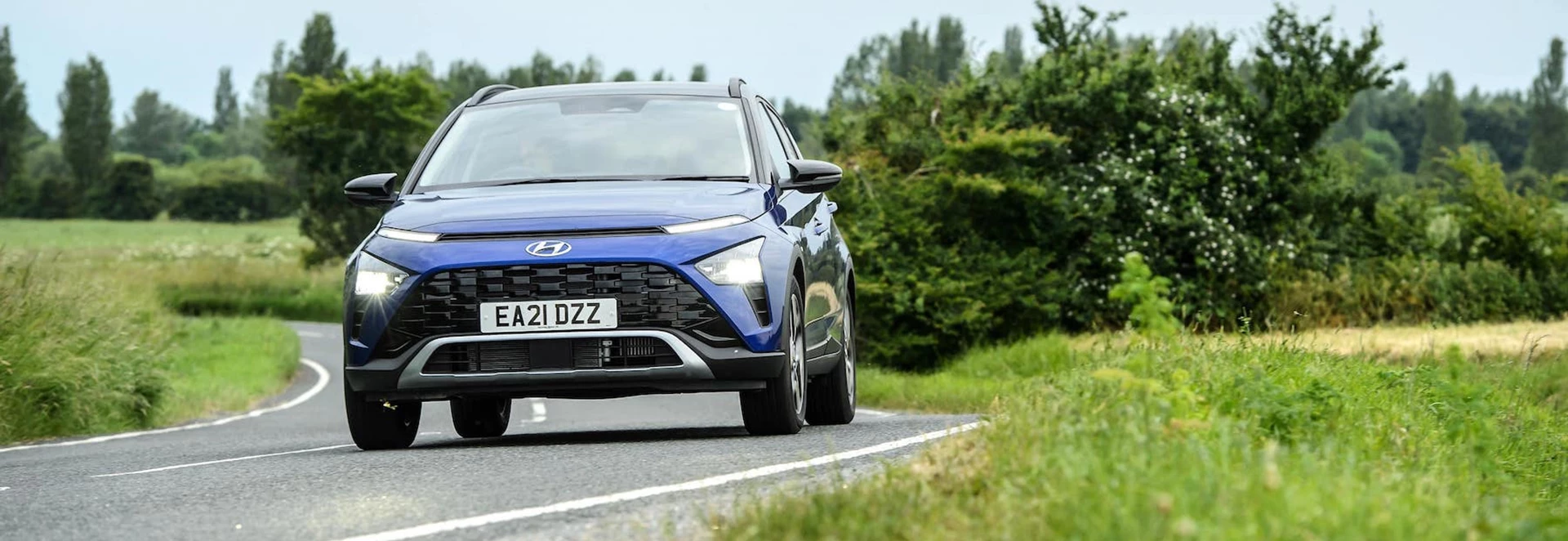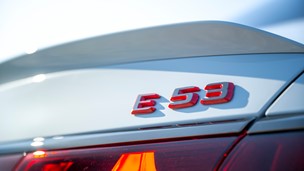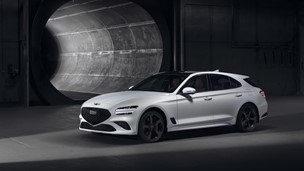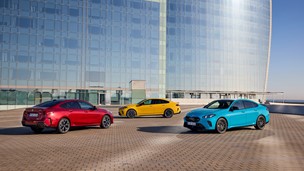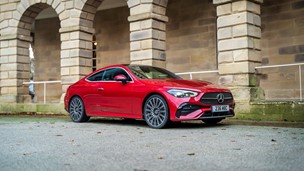Introduction
The crossover segment is in full swing. Manufacturers have noticed that people like riding up high but don’t want an uber-large car, which is why they’re producing more and more of these chunky yet compact models.
Now, Hyundai is getting in on the action with this - the Bayon. Arriving as the smallest SUV in the firm’s range, it aims to bring the level of standard equipment and build quality people associate with Hyundai, but on a slightly smaller scale. However, as we know, this crossover segment is busier than ever, so the Bayon has a very difficult job on its hands.
It could be interpreted that the Bayon directly challenges the firm’s own Kona for small crossover supremacy, but the former has a greater emphasis on practicality and value-for-money. So can it not only come out on top of the wider market but against rivals in its own backyard? We’ve been finding out
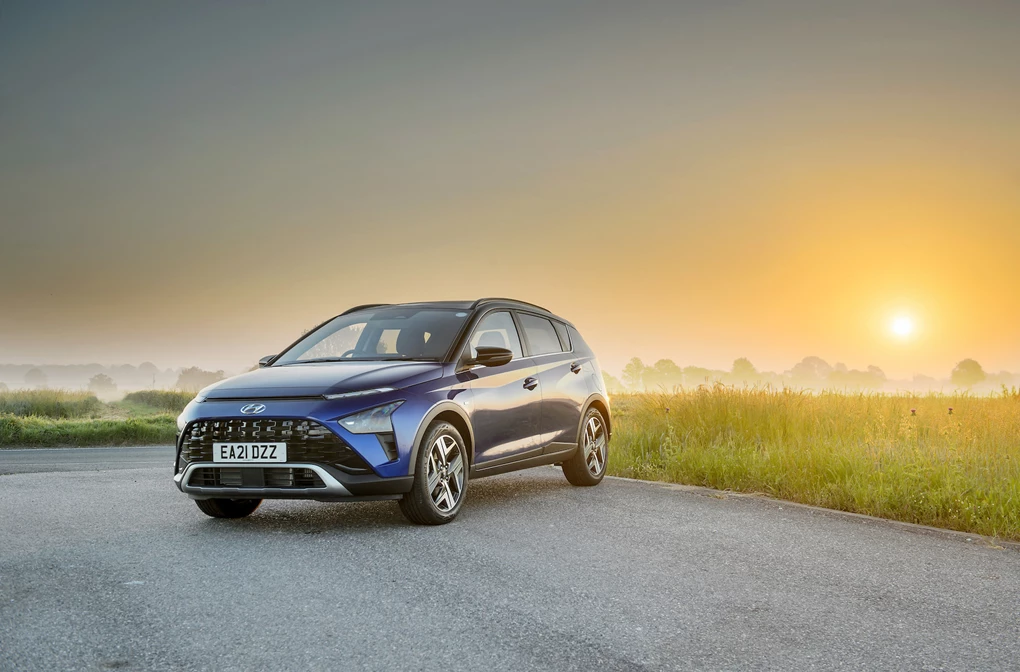
Performance
It’s a reasonably simple affair when it comes to the Bayon’s powertrains. There’s a 1.0-litre turbocharged petrol engine under the bonnet and it’s been fitted with a 48-volt mild-hybrid system to boost efficiency by taking some of the load from the engine under certain circumstances. You’ve got the option of either 99 or 120bhp, as well as either a six-speed manual or seven-speed dual-clutch automatic transmission.
As you’d expect from an engine with relatively diminutive power outputs, performance isn’t exactly scintillating. In fact, it’ll take just over 10 seconds to go from 0-60mph, but this is a powertrain with an eye on efficiency rather than power. As a result, CO2 emissions are very good, ranging between 118 and 130g/km depending on specification and wheel size.
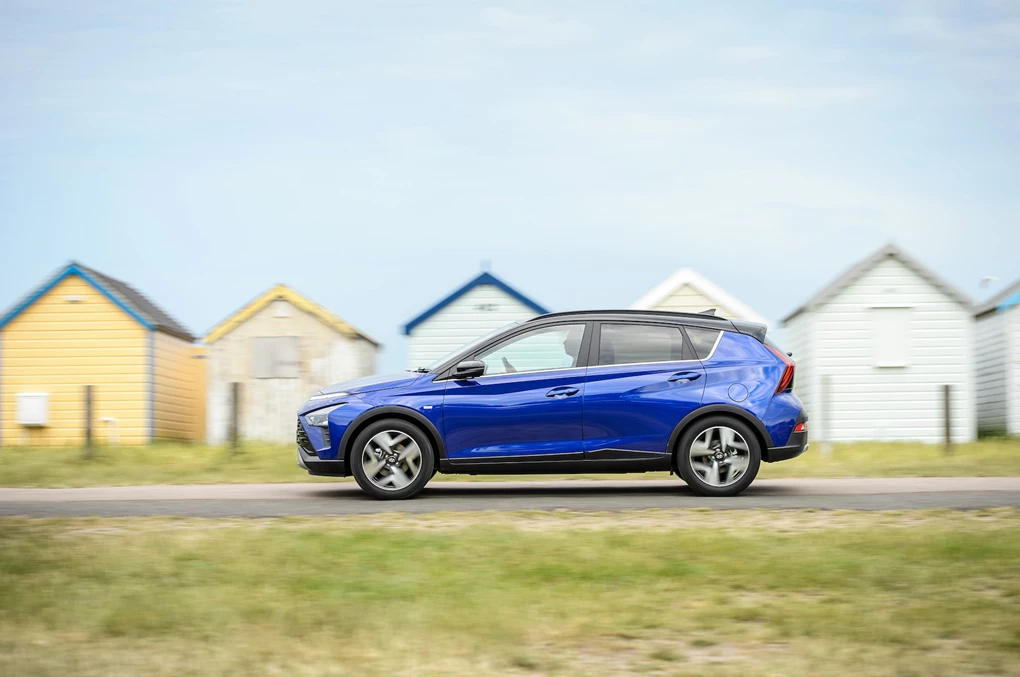
Ride and handling
The first thing that strikes you about the Bayon is its size. It’s absolutely spot-on for British roads, meaning that you can easily take a line through country roads without worrying about the car’s extremities - something you often find with many crossovers these days. This is no doubt brought as a result of the Bayon’s platform - which it shares with the i20 supermini - but this crossover manages to feel more spacious inside while retaining compact exterior proportions. It’s also really good to pilot through the city, where its raised driving position gives you a decent view of the road ahead.
The engine can be a touch vocal under hard acceleration, but otherwise, the Bayon is a comfortable and refined affair with plenty of suspension travel giving it a relaxed ride which deals with the worst of what the road has to offer.
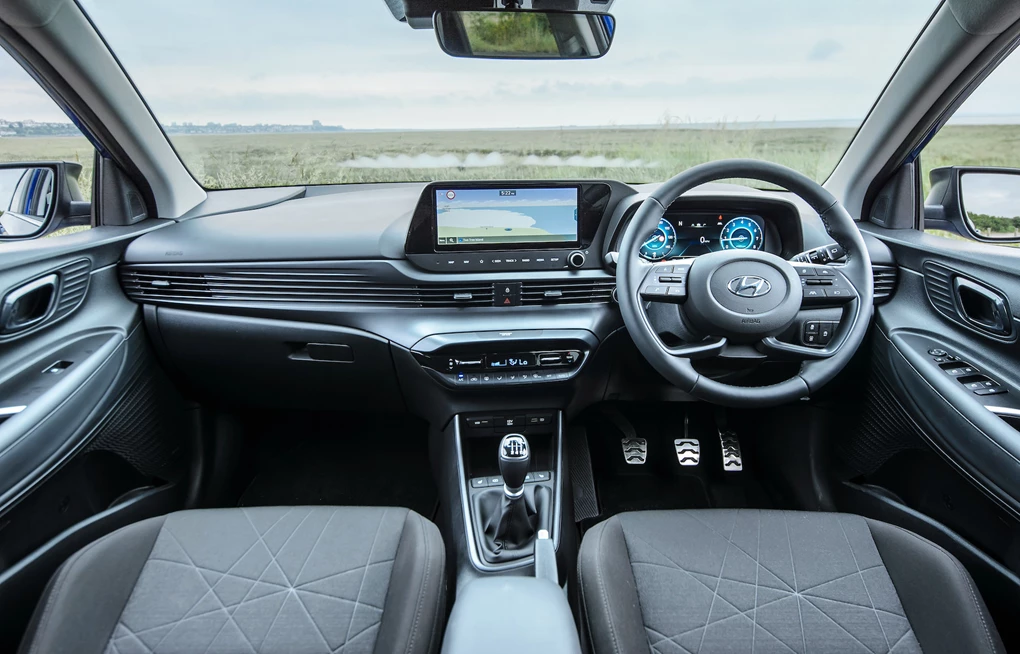
Interior and equipment
As we’ve already touched upon, the Bayon has an impressively spacious interior given how compact it is overall. The driving position is very good thanks to loads of adjustability, while the seating position is raised but not over the top, so you don’t feel ‘perched’ atop the car as you do in some of the Bayon’s rivals.
The infotainment screen is well integrated and has some useful physical shortcut buttons below, allowing you to quickly and easily find sections of the system without having to dive through the menus. As standard, the Bayon comes with an 8.0-inch screen, though this is increased to a 10.25-inch version on higher specifications. A clever new feature is the digital dials which, as well as being standard on all models regardless of trim, are clear and easy to read as well as configurable.
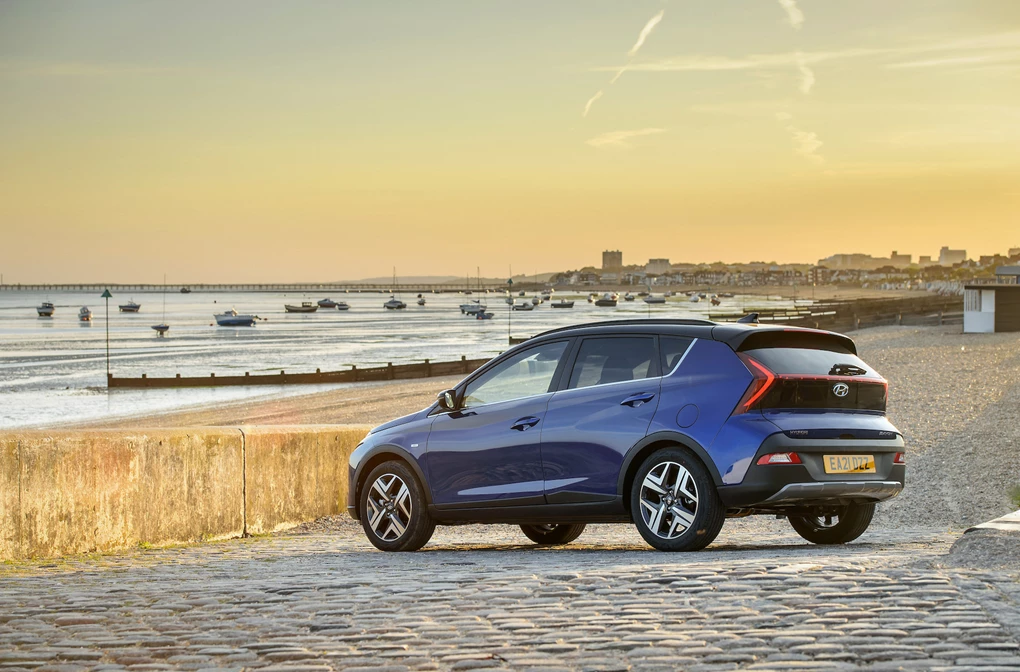
Cost
Prices for the Bayon commence from £20,295 and at this point, you get 16-inch alloy wheels included as standard, alongside LED daytime running lights and a leather-wrapped steering wheel - among other features.
Move up to Premium trim - priced from £22,495 - and you’ll find 17-inch alloy wheels added alongside automatic climate control, LED headlights and that larger 10.25-inch infotainment system. At this grade, you’ve also got the option of the more powerful engine and an automatic gearbox, too.
At the top of the range sits Ultimate. At £23,795 it’s competitively priced and brings a two-tone roof, keyless entry and an upgraded Bose sound system.
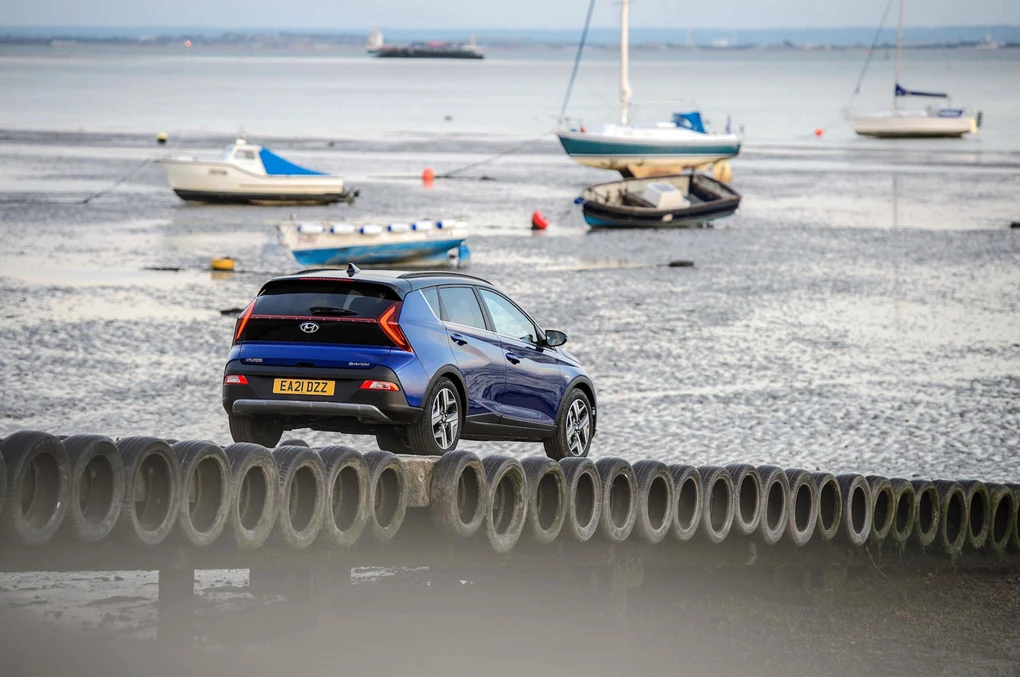
Verdict
The Bayon is an honest car. It’s practical and affordable, as well as loaded with kit and surprisingly spacious. Though it might not be the most involving car to drive, it never makes any pretences about needing to offer this.
As an all-rounder, the Bayon seriously impresses. In fact, if you’re after a car that’ll be great for the school run as well as longer journeys, then the Bayon is well worth considering.
Enquire on a new Hyundai